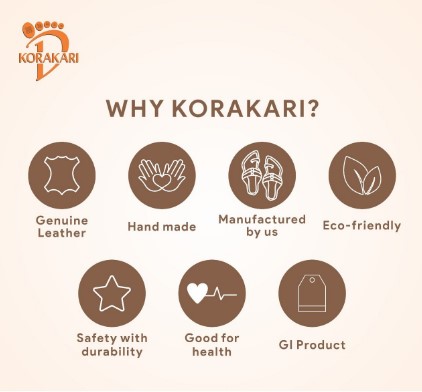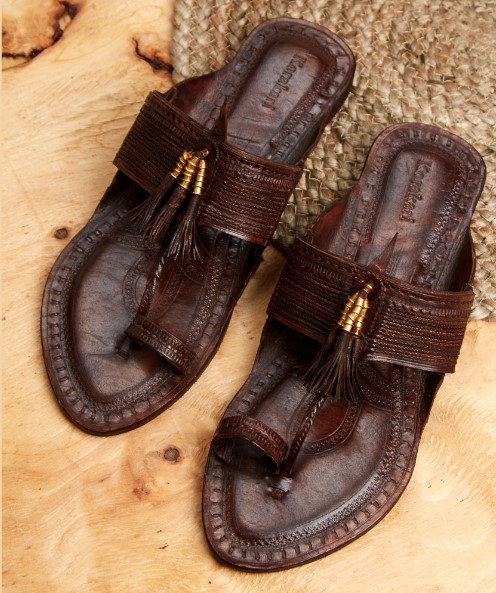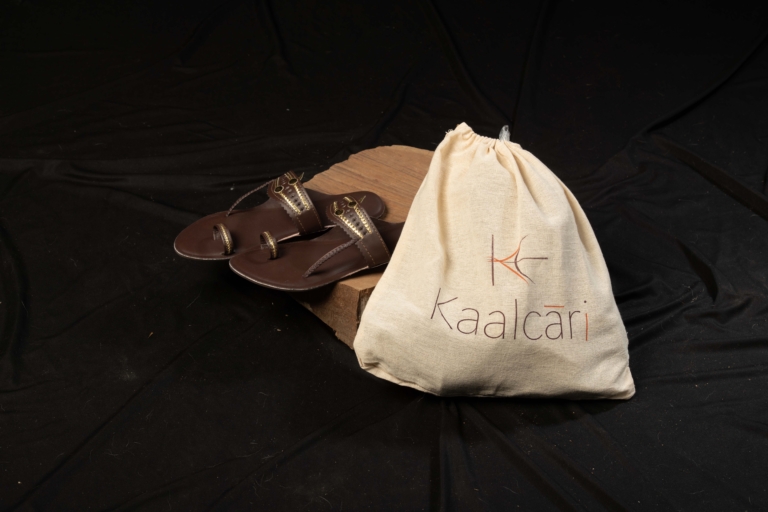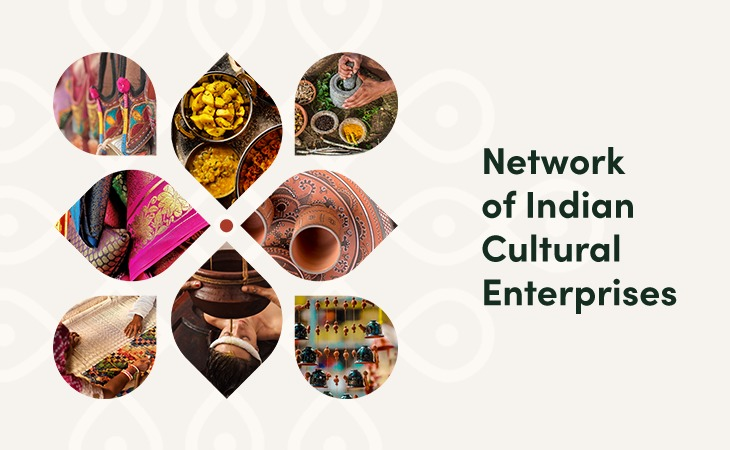With the movement towards more sustainable fashion, why look any further than our own culture that has long cherished sustainability?
Kolhapuri chappals are made in Kolhapur, a district in Maharashtra. It is a type of leather footwear that has been around for over 850 years. Not only are authentic Kolhapuri chappals extremely sturdy and durable but they are eco friendly and colored using vegetable dyes. From a health-based perspective, they are known to reduce heat from the user’s body, only adding to its long list of benefits. Korakari is a pioneer company producing Kolhapuri chappals was started by Mr. Dileep More. They aim to make authentic chappals and create an international brand name for them while bettering the livelihoods of the artisans.

Mr. Dileep More, M.Tech from IIT Dhanbad and a PhD from IIT Bombay served as an Assistant professor at IIM Calcutta for almost 4 years. This stint was a turning point for him. During the last stretch of his tenure as a professor, Mr.More taught a class on how to run a business. This made him realize the virtues of a business he knew of since a young age –his family business of Kolhapuri chappals! This spurred him to found Korakari.
Follow our conversation with Mr. Dileep More to know more about the journey of Korakari, a company that not only gives Kolhapuri chappals a platform but also strives to bring a smile to the artisans faces with better wages and working environment.
Creation of Korakari
For me, Kolhapuri chappals are the center of an age-old family business that I have seen from childhood. However, my parents wanted us to prioritize education and never forced us to continue the business. However, while mentoring students in IIM Calcutta on how to build a business, I realized that there is a business that I have seen since an early age. This was a turning point in my life, as I decided to carry on the family legacy. I then came back to Kolhapur to carry out market research before building a company from the ground up.
This research yielded high potential for products but as a business in the unorganized sector there are a lot of problems such as manufacturing issues, no standardized methodology, lobby of supply, artisans having no market connect etc. I went through a journey wrought with complaints and problems. We started our own manufacturing and created a standardized methodology process to be followed to solve these problems.
Artisans: The main stakeholders
The core of a craft-based business is always the artisans. Handmade crafts such as leather products like our chappals, is a trade that is centuries old and artisans with such skills should be highly upheld. However, as they are uneducated, they are cheated by the middleman. Artisans take loans from the middleman that they cannot repay and a vicious cycle of debt begins. . Despite working hard throughout their life,artisans don’t earn enough to show for their labor, and this has made the next generation from arisan families abandon their traditional trade and migrate to other jobs.

Added to this, as they are uneducated and with a lack of training, they haven’t changed the methodology since inception. They still use old tools and techniques, without much awareness of the market and fashion trends. With no set standardization and no emphasis on quality the products don’t reach the level that they can. In addition, there are other problems like leather supply, possibility of fungus in the creation process during rainy seasons etc.
Overcoming Obstacles
Having seen these challenges first-hand, the vision for Korakari is to uplift the lives of the artisans and their families first and foremost and then focus on building the brand., With the support of the Deshpande foundation, we have been able to meet our goals in this aspect.
We pay artisans a deserved high wages as they deserve, almost two-three times more than what they would make elsewhere. Providing them raw material at no cost has also drastically increased how much they earn on each chappal. We started manufacturing with one artisans’ family and that has spread to over 300+ families as of today. With the help of training to teach new skills the quality of the products has improved. We have also introduced a few machines such as hydraulic machines to help cut the leather to minimize hard work.

This has helped us create as much as standardization as possible and give artisans continuous orders as opposed to the seasonal nature of the business before. The interest of the next generation in this trade has revived too! For example, one of our artisans’ son came back to the family craft after finishing his higher education due to the better work environment and wages.
Sustainability through Values
As someone whose family was a part of the same trade, I am well acquainted with the intricacies that go into such craftsmanship. Something that has always touched me about this craft is the honesty and sincerity of the artisans. This is something I learn from them daily. Through this entire journey I’ve learnt the importance of sincerity and hard work as well as working on team building.
The happiness and smiles on artisans truly make my day. It further fuels my goal to make Korakari a global brand. We have been working towards this goal and have recently brought on board three highly experienced investors. Our focus is on manufacturing to increase productivity. With a very strong team, we look forward to advancing on the path to our goal and making a positive impact on society.

Alignment of our vision with NICEOrg
NICEOrg’s work aligns with Korakari’s vision and thoughts. I feel that this is a very good initiative, especially for industries in the unorganized sectors like crafts. NICEOrg provides a platform where our issues and challenges feel heard and understood, giving us a voice. Having resources to help learn on different topics required for entrepreneurship and help with fundraising is a boon for us.
Every enterprise will have its own different challenges, but the best way to overcome it is through collaboration and giving each other a helping hand. This is a cause we truly believe in as well and would love to help and participate in anytime.
If your cultural enterprise is in any of our five focus sectors and you would be interested in being featured, write to us at namaste@niceorg.in.





